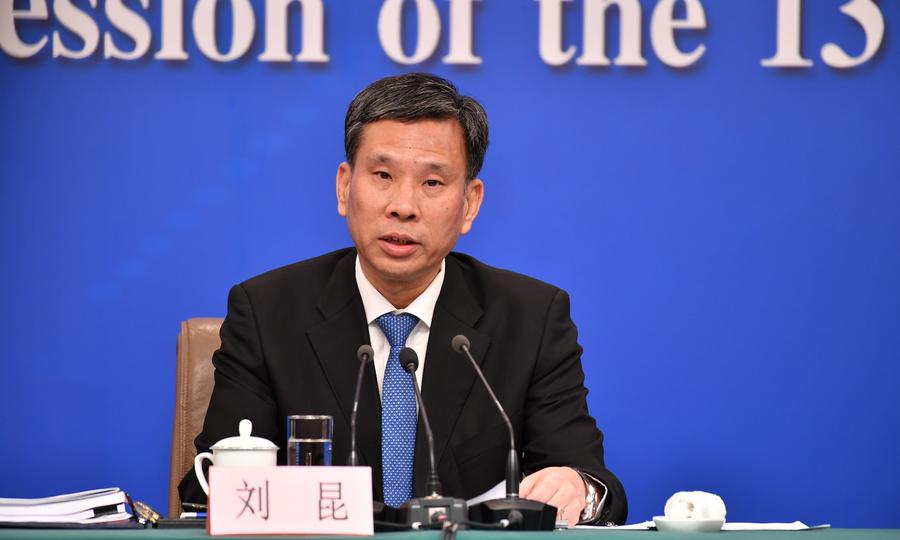Economic Events
Global financial markets could get an early boost from additional stimulus measures announced by the Chinese government.
The Ministry of Finance announced cuts in corporate taxes and fees aimed at reducing the burden on enterprises and individuals, promoting epidemic prevention and control, and driving economic growth.
Investors across the world are expecting similar fiscal stimulus measures as the coronavirus’ economic impact takes hold – reports emerged Friday that Washington is planning a tax incentive for investors in US stocks, and similar measures are expected in Singapore’s budget when it is unveiled on Tuesday.
Hong Kong’s Financial Secretary Paul Chan said the territory’s current fiscal reserves allow the government to launch sustainable counter-cyclical measures in the near future to stabilise employment and support the economy.
“Indeed, the projected fiscal deficit for the new fiscal year (2020/21), in terms of amount, may be the highest ever,” he said in a blog post.
Even as the tally of infected people approaches the 70,000 mark and the death toll rose to 1,669, there were signs of a slowdown in infections.
According to an announcement on the National Health and Health Commission website on Sunday, there were 1,843 new cases reported in Hubei on Saturday, the epicenter of the epidemic. This was a decline from the previous day’s 2,420 and 4,823 on Thursday.
Wu Qiong, of Fixed Income Research at BOCI Securities, said: “Our base case assumes the coronavirus outbreak will come under control and stabilize in March-April (at present, the measures to contain the spread of the coronavirus are effective), and economic activities will gradually return to normal.
A pneumonia-like virus outbreak will not fundamentally change the long-term trend for China’s economy, and some virus-hit industries may see a decent or even some V-shaped recovery (for example, the suppressed home buying demand will be released after the epidemic after better than expected PMI data).”
On Wednesday, investors will get the minutes of the Federal Open Market Committee’s January 28-29 meeting, to make a call on the next move by the US central bank. Analysts said a rate cut in March would be a surprise but a cut in June was possible and evidence of a weakening economy could solidify prospects of a cut in September or December.
Asia Fixed Income Markets
In Asia fixed income markets, the focus next week will be on the China and Bank Indonesia (BI) rate decisions.
“We look for the PBOC to guide the 1-year loan prime rate (LPR) lower by 10 basis points to 4.05% and BI policy on hold,” Barclays analysts said in a note.
“We expect Chinese banks to reduce their LPR on Thursday 20 February by 5-10bp following guidance from the PBOC. We also expect the PBOC to frontload MLF cuts of 15-20bp and a 50bp RRR cut in Q1 20.”
Indonesia is expected to keep interest rates unchanged even after PMI survey data showed that the manufacturing downturn extended from last year into the start of the year, with signs of demand conditions weakening, IHS Markit analysts said.
“If economic conditions deteriorate further, Bank Indonesia could cut up to 50 basis points from the policy rate, alongside additional macro-prudential adjustments,” they said in a report.
Big Fund Inflows
In the week just past, markets recorded the biggest weekly inflows into bond funds, reporting a flow of $23.6 billion with investment-grade corporate bonds registering the second-highest inflows ever at $13.4 billion, BofA Securities said, citing EPFR Global data.
“The search-for-yield theme continues to operate powerfully in DM rates and credit markets with relentless passive investor flows providing strong support. We think flows will remain a key driver of the asymmetry in bond returns,” Oxford Economics strategists said in a note.
While underlining that there may be an element of searching for yield behind these flows, they said much of it may also be structural, related to drivers such as demographics giving rise to excess savings at an unprecedented scale.
“We think core bond yields are likely to plumb to new lows, as investor sentiment falters in view of growth deterioration caused by the China virus scare,” they said.
Companies In Focus
China property developers have been told by regulators they can delay payments on land and taxes as Beijing moves to alleviate pressure on the sector as offtake slows and property prices ease.
The Financial Times reported that officials in Shenzhen, Xi’an and a number of other large cities have conveyed this message to developers in order to improve the companies’ cashflow, after more than 100 cities banned sales of new housing units as part of their efforts to stem the spread of Covid-19.
ANTA Sports Products said its financial performance will inevitably be affected by the epidemic in the first half of 2020, and it expects a recovery will come in the second half of 2020 at the soonest.
Glenmark Pharmaceuticals announced a 64% rise in profit in the December quarter but analysts will be interested in more details about its Active Pharmaceutical Ingredient (API) business, which grew at 9.5%.
India imports 70% of its API requirements from China, to manufacture key medicines such as paracetamol, metformin, ofloxacin, metronidazole, ampicillin and amoxycillin.
Glenmark, like many other drugmakers, is hugely dependant on this source for raw materials despite growth in its own API business.
• Umesh Desai
This report was updated for style purposes on Dec 21, 2021.
























